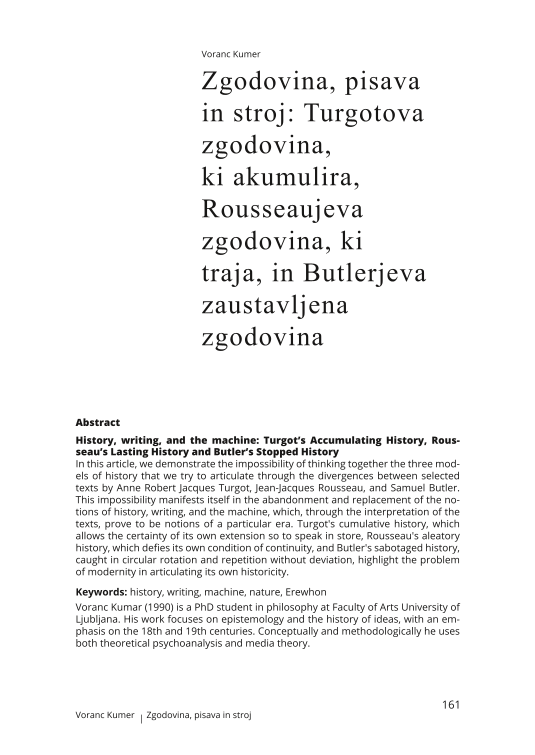In this article, we demonstrate the impossibility of thinking together the three models of history that we try to articulate through the divergences between selected texts by Anne Robert Jacques Turgot, Jean-Jacques Rousseau, and Samuel Butler. This impossibility manifests itself in the abandonment and replacement of the notions of history, writing, and the machine, which, through the interpretation of the texts, prove to be notions of a particular era. Turgot's cumulative history, which allows the certainty of its own extension so to speak in store, Rousseau's aleatory history, which defies its own condition of continuity, and Butler's sabotaged history, caught in circular rotation and repetition without deviation, highlight the problem of modernity in articulating its own historicity.




